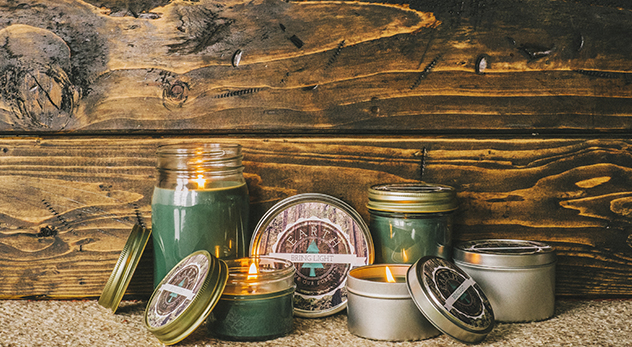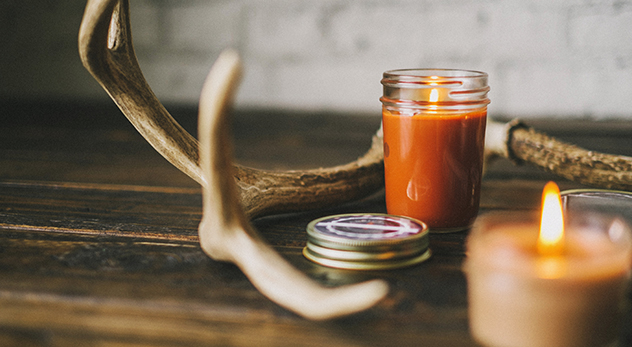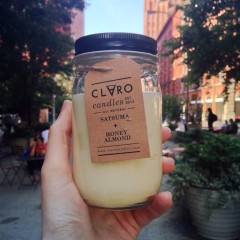
Jefferson Bethke, Christian YouTube sensation and bestselling inspirational author, launches a socially-conscious candle company to fight injustice.
Jefferson Bethke is known for illuminating some of the differences between religion and true faith. His 2012 YouTube video “Why I Hate Religion, But Love Jesus” has been viewed more than 27 million times and the accompanying book became a “New York Times” bestseller. But now Bethke is shining a more literal light on injustice through a socially-conscious candle company.
Claro, which is Latin for “to bring light to darkness,” is his newest venture. The company sells candles, donating a portion of every sale to non-profits that benefit various causes. The candles are now being sold in 64 stores spanning 21 states. The retail giant Nordstrom has just set up Claro as a vendor and is expected to place their first order soon.
Bethke hatched the idea with his friend and business partner, Brett Kolomyjec, while on a trip to Uganda in 2012.
“At the end of our trip, we saw pillar candles for sale in a store with a little sign that said something like, ‘Bring light to a trafficking victim,’” Bethke says. “We were sick of the model where non-profits beg donors for money and trying to brainstorm a better way. We began thinking about how we could use the domain of business to make money to give to non-profits.”
The pair settled on candles, according to Bethke, because of their “timeless” appeal and the “double meaning of selling light and bringing light to others.” The candles are 100% soy, hand poured by a single Claro employee in Tacoma, Washington. To increase their uniqueness, Bethke says they’ve selected unusual scent pairings such as “Whiskey + Oak,” “Satsuma + Honey Almond,” “Tobacco + Fig,” and “Amber + Citrus Ginger.”
A portion of each Claro candle is donated to a non-profit to fund a particular action. The partner charities are not listed on the website, but Bethke and Kolomyjec shared them via email:
| CANDLE | CHARITY | PROVIDES… |
| “Care” | Food For The Hungry | Life-saving vaccination for a child in need |
| “Earth” | Plant With Purpose | Tree for an area threatened by deforestation |
| “Education” | World Vision | Day of school for a child who otherwise can’t go |
| “Food” | Food For The Hungry | Meal for a hungry child |
| “Freedom” | Celebrate Recovery | Rehab session for a recovering addict |
| “Love” | Resotration Gateway | Night of shelter for a homeless orphan |
| “Peace” | Exile International | Trauma counseling session for former child soldier |
| “Rights” | Genesis Project | Rescue protection for a victim of the global sex trade |
| “Water” | The Water Fight | One year of clean water for person in East Africa |
In my interview with Bethke, I questioned whether he believed his approach to charity through consumerism might have unexpected negative consequences. Do we really want to teach people that you need to make a purchase in order to be generous? In other words, is it healthy to create an expectation that one must always get something when they give something?
Bethke admitted he wrestles with this question. He acknowledged that if someone spends $20 on something and $10 goes to a cause, a critic might ask if it is preferable to just give $20 to the cause and not buy anything. Bethke contends, however, that the issue is more complicated:
“It’s tough because efforts like ours do give money away and they do create a quality product in the sacred realm of business and they do create jobs in an economy where jobs are somewhat hard to come by. Plus, consumers are already going to spend. We create opportunities for people to spend the money they are already going to spend in a better way,” Bethke said. “I don’t know if I’ll ever have a perfect answer for how followers of Jesus should do business in a capitalistic country. But our business model works, and I think it is a more sustainable way to accomplish good.”
It is hard to argue with Bethke’s contentions that the model has worked. According to Kolomyjec, Claro has already sold more than 10,200 candles nationwide. That number is expected to increase dramatically once Nordstrom begins placing orders.
The success of Bethke’s candle company—along with his videos and book—prove that the artist, author, and entrepreneur has the Midas touch. As Claro candles begin showing up on more retailers shelves, one has to wonder, “What will King Midas touch next?”







